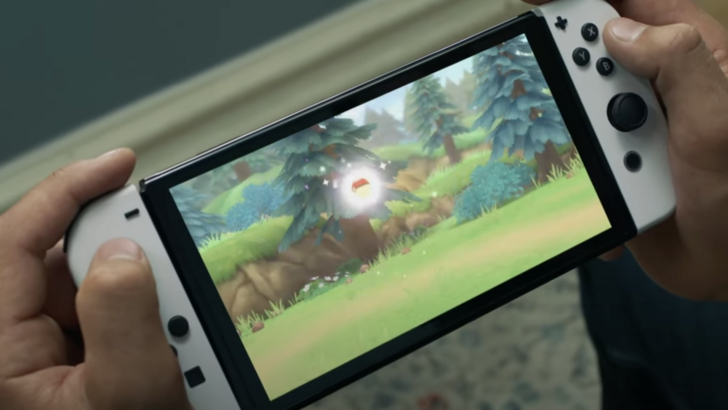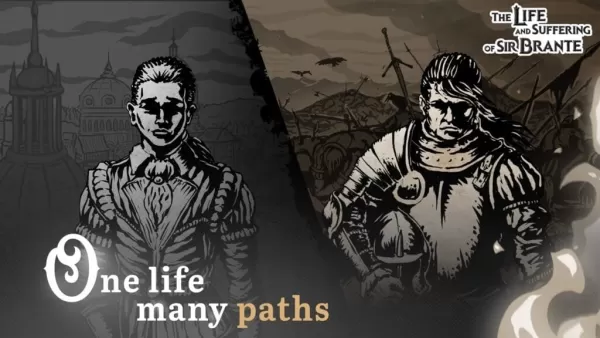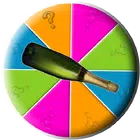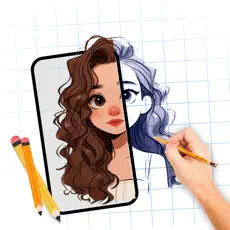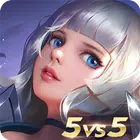Kris in DELTARUNE: A Protagonist Beyond Your Control
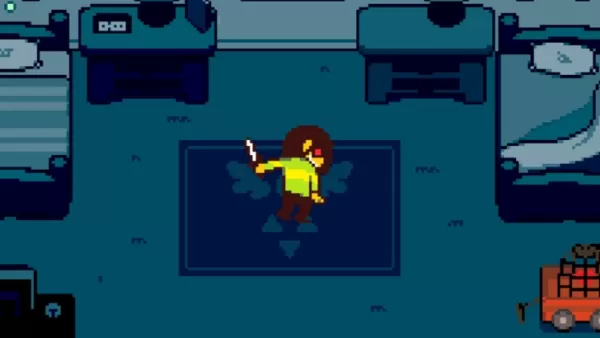
Kris, the enigmatic protagonist of DELTARUNE, sparks endless questions: Are they a puppet, a rebel, or something darker? Dive into the theories, symbols, and eerie truths behind their story.
← Return to DELTARUNE main article
This article contains spoilers for UNDERTALE and DELTARUNE Chapters 1 and 2, including endgame moments and character analyses.
Player, Protagonist, and Vessel in DELTARUNE
Who Holds the Reins?
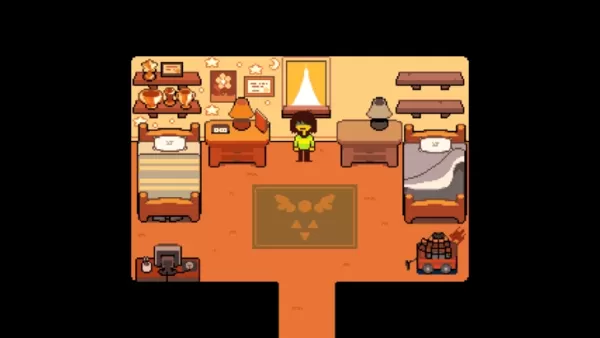
From the outset, DELTARUNE feels unsettling. Kris, the reserved, tousle-haired lead, stays silent, barely emotes, and occasionally defies your commands.
At first, it seems like a narrative quirk. DELTARUNE’s story-driven nature might cast Kris as a conduit for your choices, akin to Undertale’s Frisk. But Chapter 1’s finale shatters that. Abruptly, Kris tears out their SOUL—your glowing red cursor—cages it, and grabs a knife.
You’re left as a bystander.
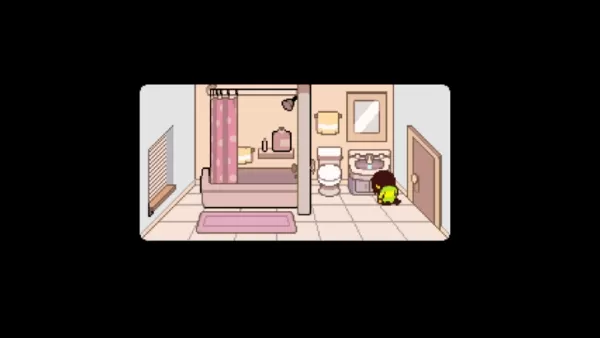
Chapter 2 echoes this. You’re powerless to intervene. The game drives home a stark truth: you guide Kris in battles, but they’re not yours. Something deeper stirs beneath their quiet facade. Something calculated.
Here, the enigma unfolds.
Could Kris be haunted by Undertale’s Chara? Are they feigning compliance while you watch? Do they resist you, or another force entirely?
To unravel this, we must explore Undertale’s echoes, the symbolism of SOUL and eye, and the paradox of a game that grants control only to wrest it away. With DELTARUNE Chapters 3 and 4 nearing release, now’s the time to probe one of its deepest riddles.
Kris, Frisk, and Chara: A Tangled Legacy
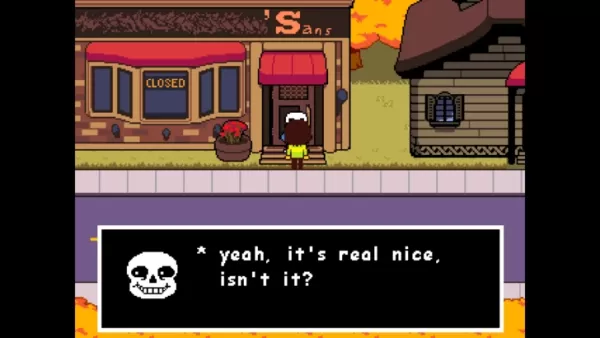
To grasp Kris’s essence, we must trace back to Undertale’s pivotal figures: Frisk and Chara, who shaped its moral and narrative arcs.
Frisk, Undertale’s silent protagonist, is your avatar in the Underground. Named and steered by you, they’re a canvas for your choices—pacifist, neutral, or merciless—reflecting your will.
Chara, the first human to fall, lingers offstage. Their presence surfaces starkly in the Genocide route, where your slaughter of monsters rouses them. They embody rage, ruin, and complicity, mirroring your darkest impulses.
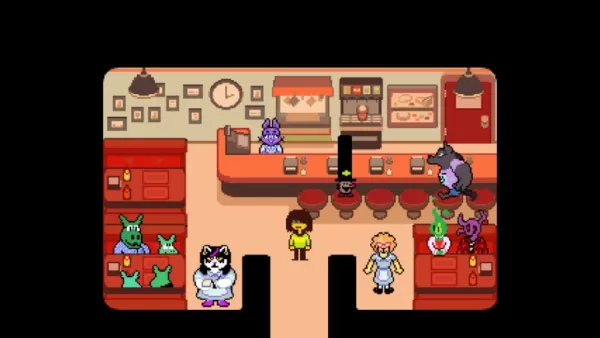
Now meet Kris, DELTARUNE’s lead. They resemble Frisk—a quiet human in a strange world—but differ sharply. Kris has roots: a home, family, and reputation. They’re not your blank slate; they’re their own entity.
The red SOUL, Undertale’s emblem of Determination and control, resides in Kris. Yet, twice, they rip it out, as if it’s alien. Without it, Kris acts alone, hinting at a shadow akin to Chara’s influence.
What’s happening? Is Chara steering Kris, as in Undertale’s darkest path? Is Kris their reincarnation? Or are they fighting both Chara and you, seizing their own fate in a world that seeks to define them?
DELTARUNE weaves a thread among Frisk, Chara, and Kris—player, influence, and enigma. The truth lies within their interplay.
The Symbolism of Control
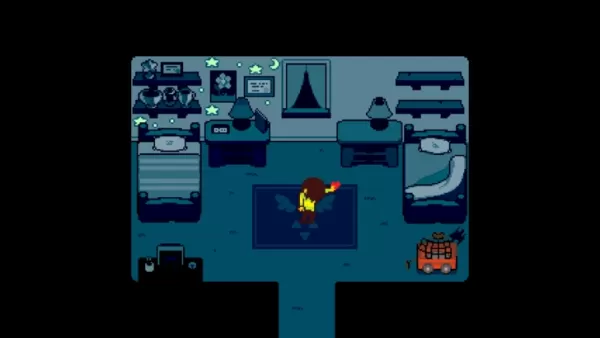
In Undertale, the red SOUL is more than a health gauge. It’s your will, shaping Frisk and the story’s course. It’s Determination—a force that defies death and time. Where the red SOUL goes, agency follows.
In DELTARUNE, that symbolism cracks.
Twice—at Chapter 1’s and Chapter 2’s close—Kris expels the red SOUL. The act is sudden, wordless, and chilling. In Chapter 1, post-bedtime, Kris plucks the glowing heart, cages it, and draws a knife with eerie calm. In Chapter 2, they repeat it to unleash a Dark Fountain. Each time, Kris acts unbound.
The stakes are vast. If the red SOUL is you, these aren’t mere plot twists—they’re rejections. Kris isn’t your partner; they’re severing your influence. Either you’ve lost control… or you never had it.
Why discard the SOUL? Is it possession—Chara or another entity seizing Kris once you’re gone? Or is Kris breaking free, acting without a force puppeting their moves?
Both theories hold weight.
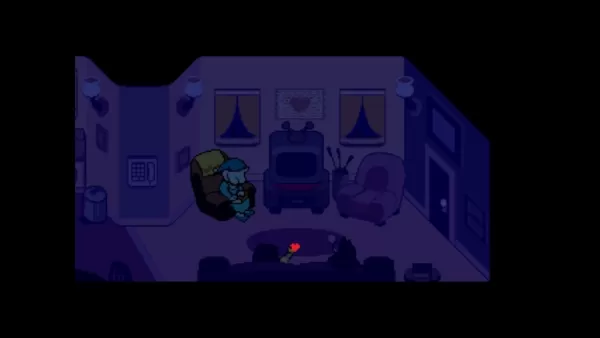
If Kris is reclaiming freedom, you’re the intruder. The SOUL—your presence—is a burden they bear. These moments become acts of defiance. Kris isn’t possessed; they’re shedding your control. Your commands, your detours to chat with NPCs, aren’t theirs. When night falls, Kris casts you off like a disguise.
But that’s heavy. If you’re an uninvited guest, who is Kris? A weary teen craving solitude, or something complex?
Ambiguity seeps in. Without the SOUL, Kris doesn’t rest. They wield knives, smirk in shadows, and open Fountains that could unweave worlds. These aren’t neutral deeds. They pulse with purpose, perhaps menace.
So maybe Kris isn’t fleeing you for freedom, but to act unchecked. A hidden agenda might drive them, one you can’t derail.
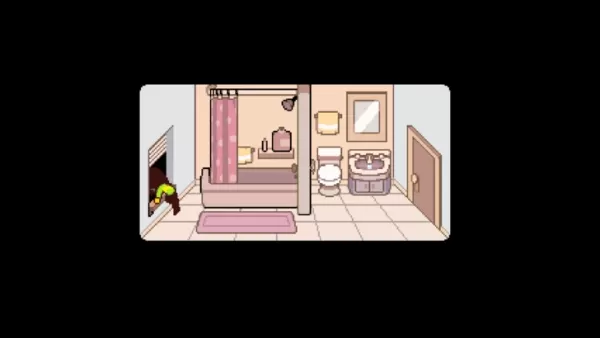
Alternatively, Kris might be overtaken. The SOUL could be theirs, holding a worse force at bay. Without it, something else emerges. Chara’s red eyes in Undertale fuel speculation: Is Chara hijacking Kris?
This ties to Undertale’s Genocide finale, where Chara, after all is razed, says:
“There’s nothing left here. Let’s erase this world and move to the next.”
Once a meta jab, it now looms larger. What if DELTARUNE is that “next” world? Not a sequel, but Chara’s promised stage. A realm where the SOUL—and you—return, but with limits.
This darkens the SOUL’s removal. If Chara’s echo lingers, Kris isn’t just a vessel—they’re a conduit. Each chapter, they cut your tether further.
Why Kris, though?
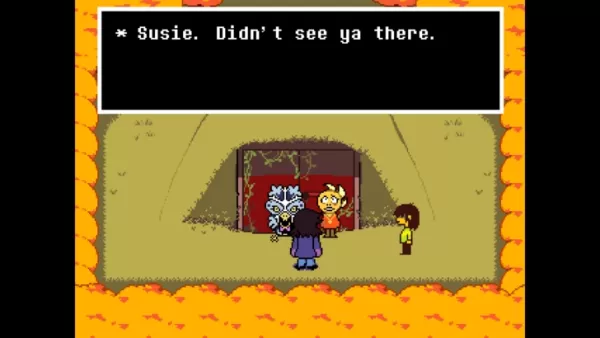
Kris stands apart. Adopted, the sole human among monsters, they’re aloof, unshaken by the surreal terrors around them. While others panic, Kris is blank. They know something primal.
Perhaps Kris’s form is unique, primed to host a breaching force. Maybe they’re fragile, emotionally or spiritually. Or they harbor a latent power—able to spark Fountains, bend reality, or cradle ancient entities. The SOUL’s removal redefines your role: not the story’s heart, but a guest in Kris’s frame. When they’re done, they lock you away.
The Red Eye: Possession or True Self?
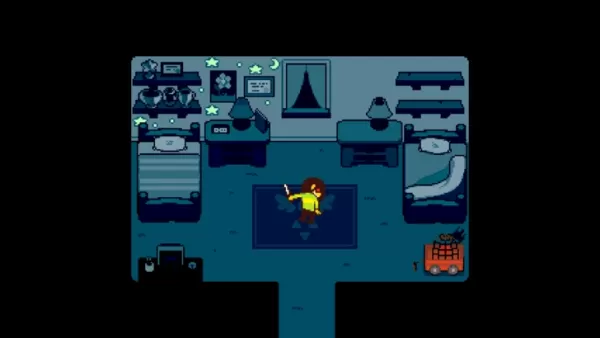
Each SOUL removal—Chapters 1 and 2—brings a fleeting, piercing detail: one of Kris’s eyes flares crimson. Unexplained, unacknowledged, it shifts everything.
What does it signify? Chara is the first link. In Undertale, Chara, the first fallen human, awakens in the Genocide route, tied to destruction. The red eye might hint they’ve claimed Kris as a new host.
Or it’s not Chara. The eye could mark a distinct entity—not Kris, not Chara, but a third force stirring when the SOUL vanishes. A dormant self. A buried power. Something ancient or divine. This aligns with whispers of the “Knight,” a shadowy figure crafting Dark Fountains, possibly steering the worlds’ collision. Is Kris the Knight? Or their vessel?
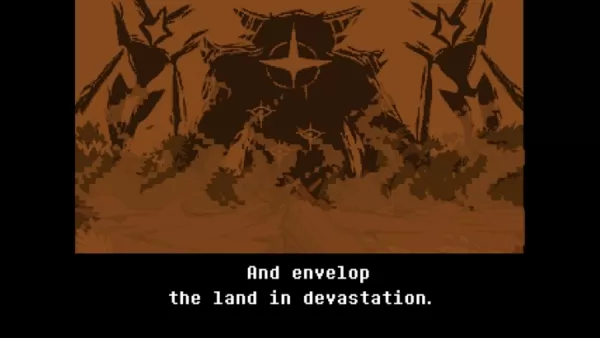
The eye signals a shift. Without the SOUL, your mask falls, and the Knight—or another force—surfaces. No other character behaves this way, underscoring Kris’s anomaly.
Or perhaps it’s purely Kris. Not possessed, not invaded—just themselves, unfiltered. The red eye, tied to Undertale’s violence and loss of control, might be Kris’s raw will: fierce, untamed, possibly divine. If the red SOUL is Determination, the red eye could be a warped, self-driven force. Kris might not echo Chara—they could be DELTARUNE’s own Chara, not a pawn, but the danger.
This isn’t baseless. DELTARUNE’s lore paints Kris as a prankster—ketchup as blood, bath bombs in toilets. Harmless, but edged with defiance. What if that mischief sharpened into something deliberate?
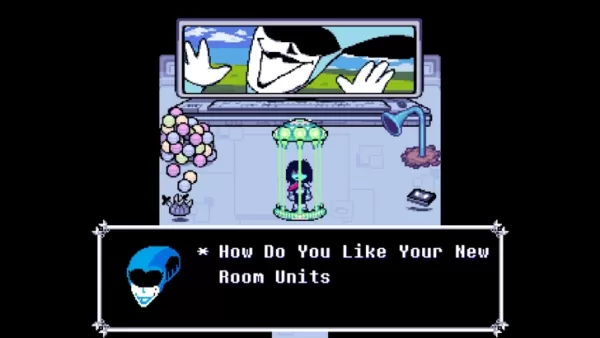
Pranks can darken. Kris, an outsider—adopted, human, watched—might channel that alienation into intent. Removing the SOUL could be less rebellion, more emancipation—shedding constraints like a leash.
DELTARUNE offers no judgment. These moments are Kris’s secret with the screen. Toby Fox’s restraint—giving glimpses, not answers—is deliberate. The red eye embodies Kris’s duality: a teen and a potential cataclysm. Vessel and actor. Hero and threat.
That glowing eye is a fracture in the reflection—a hint of something else gazing back when you’re no longer in control.
Is Kris the Knight?
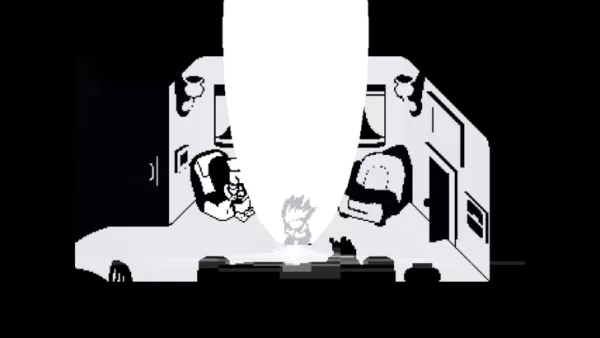
The Knight haunts DELTARUNE’s narrative, unseen yet pivotal. They forge Dark Fountains, disrupting Light and Dark’s balance. Ralsei casts them as chaos incarnate. Could they be Kris, the one we’ve guided all along?
Chapter 2’s end sees Kris rise, remove their SOUL—your link—and carve a Dark Fountain with a hidden blade. You’re sidelined—no choices, no voice. Just Kris, moving with purpose.
The link is clear. The Knight spawns Fountains; Kris does too, but only when you’re absent. So, is Kris the Knight? Or a tool?
Consider Kris as the Knight. They’re the only one seen opening a Fountain, a ritual marked by intent: ejecting the SOUL, wielding a blade, piercing reality. This isn’t impulse—it’s design.
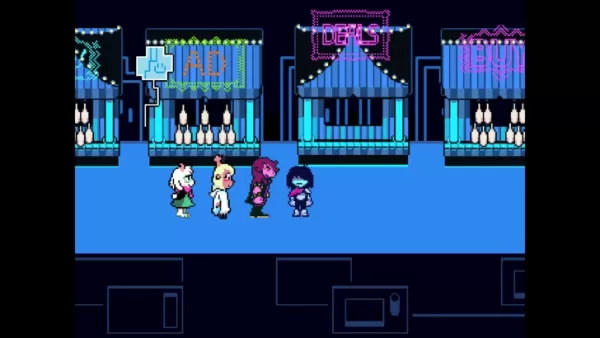
In Chapter 1, Kris flashes a knife, but Toriel later attributes it to pie-eating. In Chapter 2, that blade opens a Fountain in their living room. The knife isn’t just a weapon—it’s a catalyst. Kris keeps it close, hinting at foresight.
Yet, intent doesn’t equal freedom. What if Kris is compelled—by Chara, the Knight, or an unknown force? Removing the SOUL might not empower Kris, but what emerges after. Kris could be a conduit, not a creator.
Or it’s murkier. Kris might be neither puppet nor master, but caught between. Driven by their own pain, they act in stolen moments, perhaps not to destroy, but to mend—or cry for help through chaos.
That vagueness feels intentional.
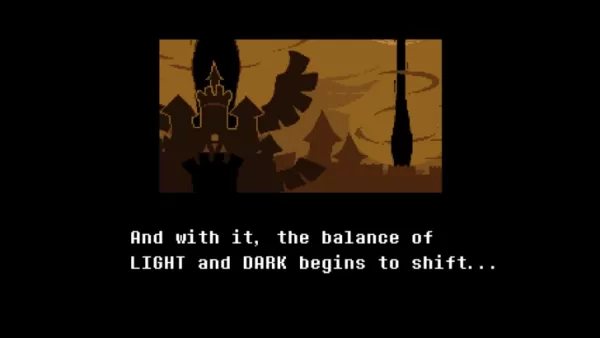
Toby Fox loves misdirection. Kris’s Fountain-opening could be a feint, designed to make us suspect them while the true Knight lurks. We never see the act’s aftermath—only its result. The game might be baiting us to misread Kris, obscuring the real culprit.
The Knight’s identity remains fluid. No one claims the title, and no one’s seen them. Perhaps the Knight isn’t a person, but a role—claimed by any with the will to reshape reality. Kris fits because of their actions, not their name.
Is Kris the Knight? No clear answer exists. But the signs mount: Fountains rise, the knife stays near, and without the SOUL, Kris leads. The real threat in DELTARUNE isn’t its villains—it’s the protagonist, unchained.
Player vs. Protagonist
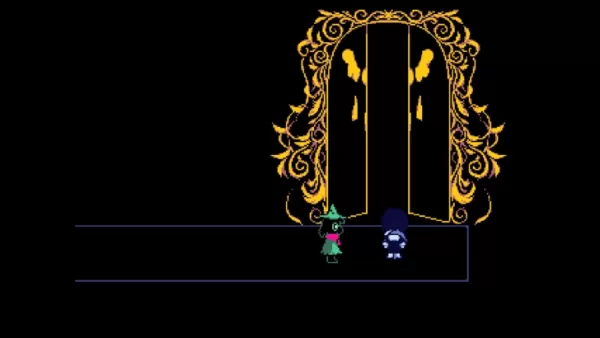
A prevailing DELTARUNE theory argues we’re not Kris. We’re a separate entity—a SOUL imposed on them, an uninvited guest.
This “Player theory” sees Kris as a complete person—emotions, desires, and all—while we’re just passengers. The red SOUL, once Undertale’s symbol of agency, now embodies our control, not Kris’s. Their act of removing it is a clear line drawn.
The Snowgrave route in Chapter 2 cements this. Noelle hears a voice urging violence—not Kris’s, she says. If not Kris, it’s us. The SOUL isn’t just influence; it’s our presence, meddling in a world that doesn’t want us.
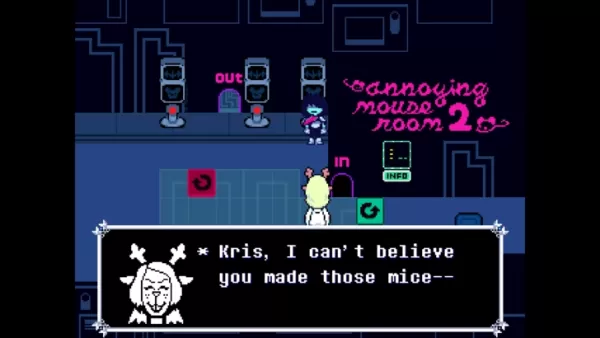
Disturbingly, Kris aids in Snowgrave, guiding Noelle’s descent. Are they complicit, or caged? Do they enable us willingly, or are they bound by our will?
This clash—Kris’s will versus ours—makes DELTARUNE a battle of identities, not morals. If Kris resents us, their violent SOUL removal makes sense. Every bond they forge, every choice we make, filters through us, defining them against their will. When they act alone—caging the SOUL, slipping out, opening Fountains—they reclaim their voice.
Or maybe it’s not resentment. Perhaps Kris fears our presence, caging the SOUL not to harm us, but to shield us—or the world—from what’s next. A warning? A mercy?
Toby Fox leaves it unclear, offering clues, not conclusions. DELTARUNE probes what it means to share a body with someone who didn’t choose you, each step deepening the question of who leads whom.
Clues and Deceptions
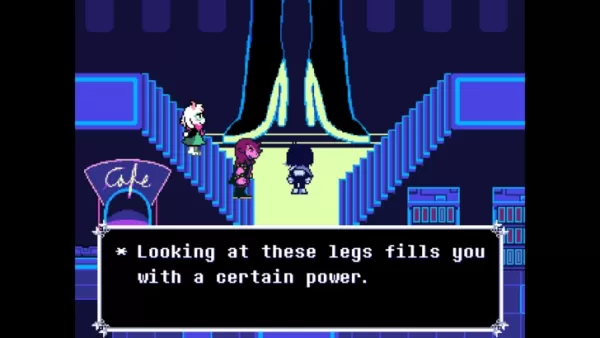
Toby Fox’s stories thrive on illusion. His games weave meta-narratives, unreliable voices, and symbols that demand scrutiny. DELTARUNE is his most intricate puzzle yet.
It obscures motives and control. Kris’s key actions—SOUL removal, Fountain creation—occur without you. The game offers haunting visuals—a caged SOUL, a shadowed smirk, a slashing blade—but no answers. It’s storytelling by absence, where silence speaks loudest.
This is by design. Toby crafts narratives like fractured plays. The SOUL, an RPG staple, doubles as your tether to Kris. It’s tempting to see their SOUL removal as villainy or possession, but Toby’s hints in Undertale and DELTARUNE urge skepticism of easy reads.
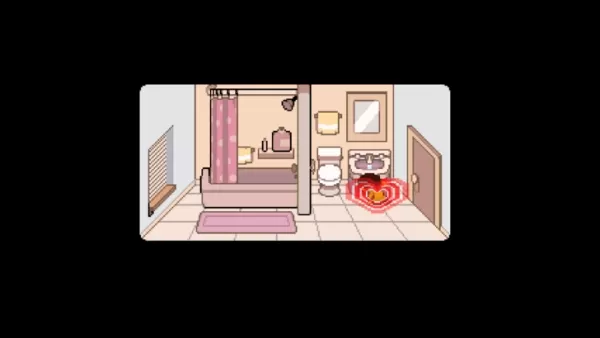
Recall Flowey: a cheerful guide unmasked as a SOULless manipulator, later revealed as Asriel’s echo. Toby challenges what games “tell” versus show.
So when Kris grins post-SOUL removal, don’t ask, “What’s their plan?” Ask, “What are we assuming about them—and why?”
Toby’s ambiguity spotlights autonomy. What does “protagonist” mean if Kris lacks control? Or if we steer them, cloaked in benevolence? DELTARUNE doesn’t ask if you’re good or evil—it asks if you belong here.
This unease, this refusal to clarify your role, is Toby’s craft. He wants you to spiral, to theorize, to question. DELTARUNE isn’t just a game—it’s a mystery you inhabit, with Kris as its elusive core.
Who Is Kris, Truly?
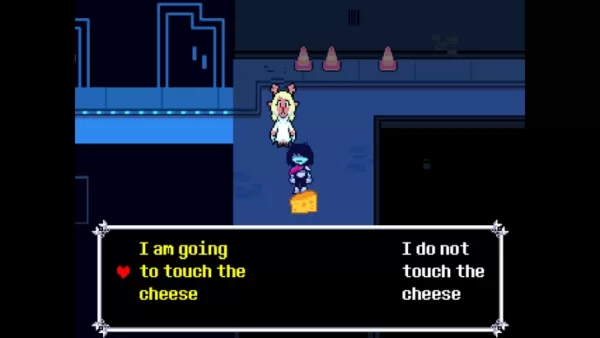
After two chapters and endless speculation, Kris remains a cipher. Are they Chara’s pawn, swayed by a force from another world? Chara reborn, trapped in a new cycle? Or a soul resisting not a villain, but us?
The red SOUL, once Undertale’s light of will, is now a cage or a leech, depending on perspective. Its removal—freedom or fall? The red eye—ancient power or a glimpse of Kris’s true face?
These are deliberate strokes, quiet and unnerving. Until Chapters 3 and 4 arrive, we’re left to ponder. But that’s DELTARUNE’s aim: not to answer, but to make you question your place. Kris embodies that tension, defying ownership and clarity. Whether they resist Chara, you, the Knight, or fate, one truth shines:
Control is a mirage. And Kris is stirring.
You may also like...
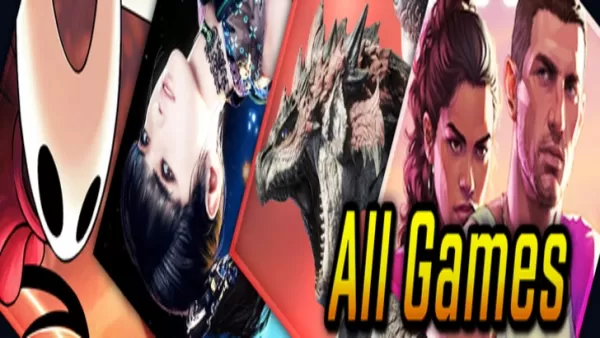
-
1
![Roblox Forsaken Characters Tier List [UPDATED] (2025)](https://imgs.ksjha.com/uploads/18/17380116246797f3e8a8a39.jpg)
Roblox Forsaken Characters Tier List [UPDATED] (2025)
Mar 17,2025
-
2
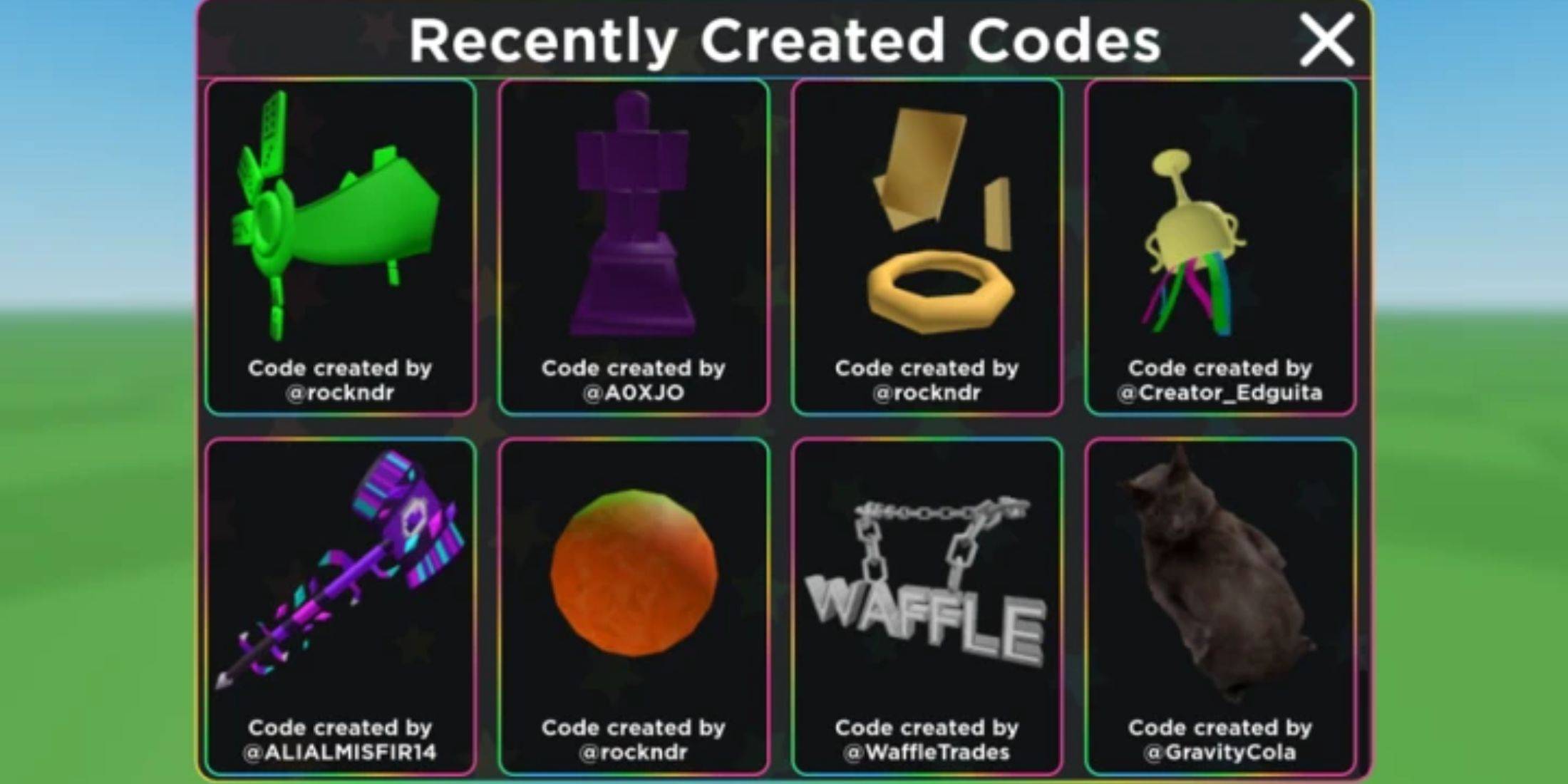
Roblox UGC Limited Codes Unveiled for January 2025
Jan 06,2025
-
3
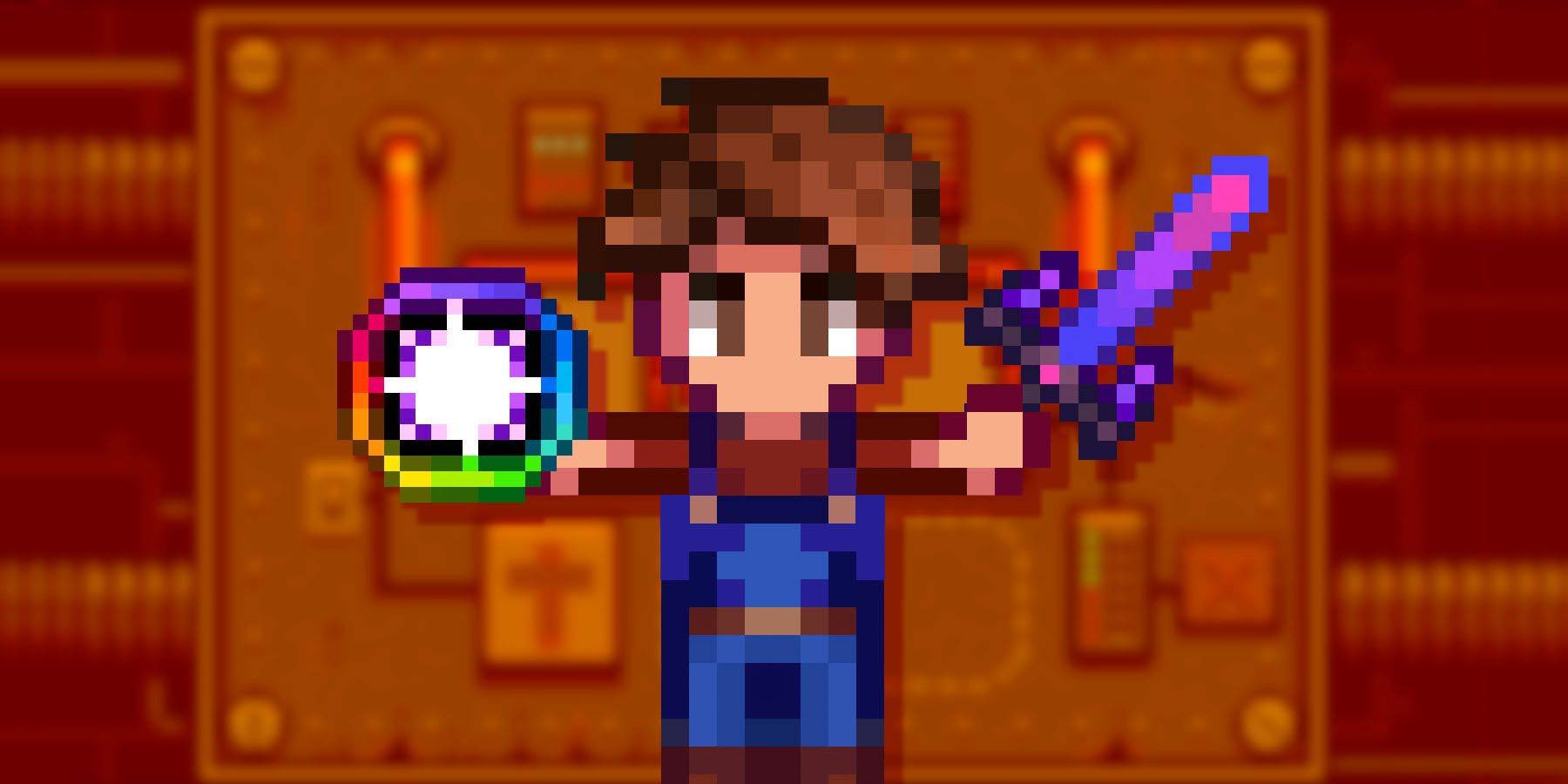
Stardew Valley: A Complete Guide To Enchantments & Weapon Forging
Jan 07,2025
-
4
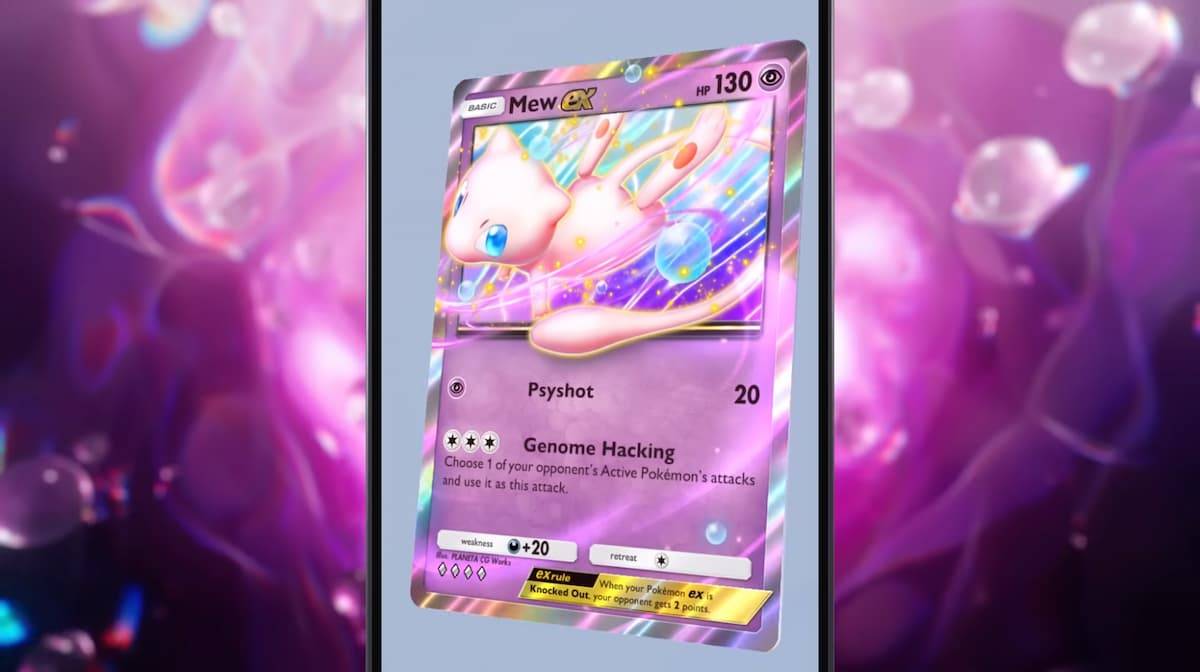
Pokémon TCG Pocket: Troubleshooting Error 102 Resolved
Jan 08,2025
-
5
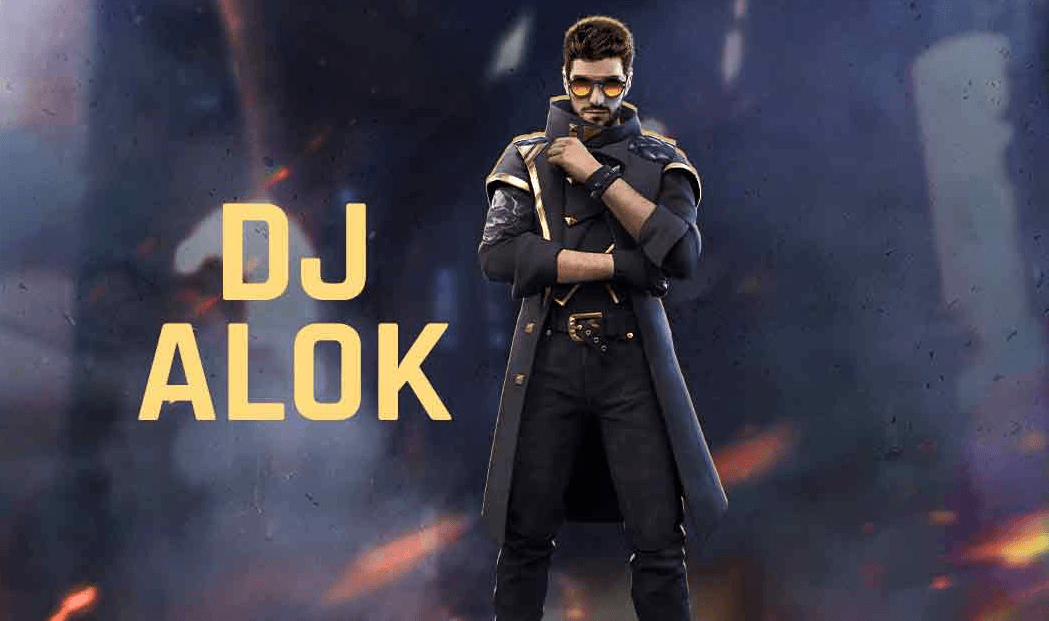
Free Fire Characters 2025: Ultimate Guide
Feb 20,2025
-
6
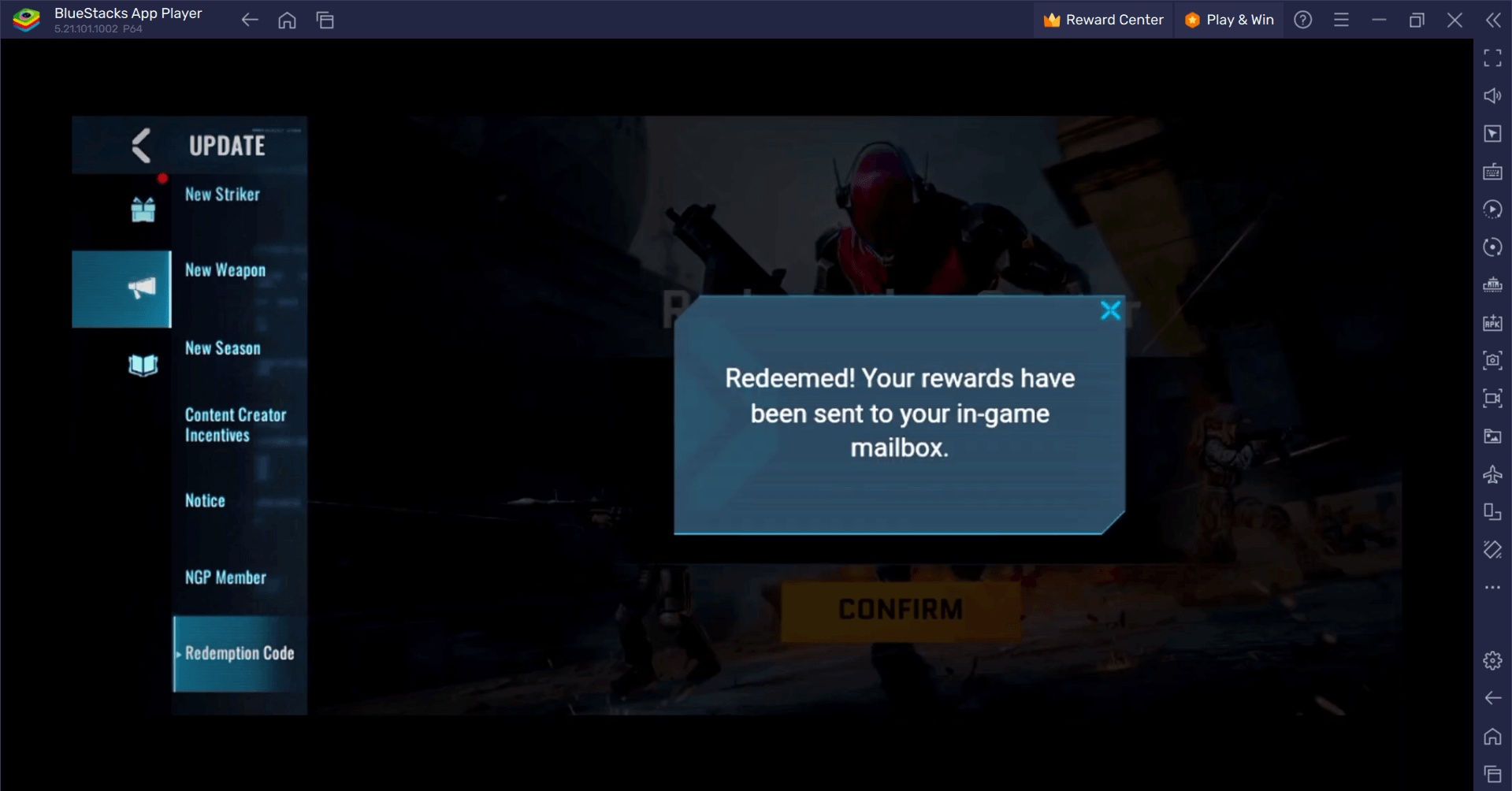
Blood Strike - All Working Redeem Codes January 2025
Jan 08,2025
-
7
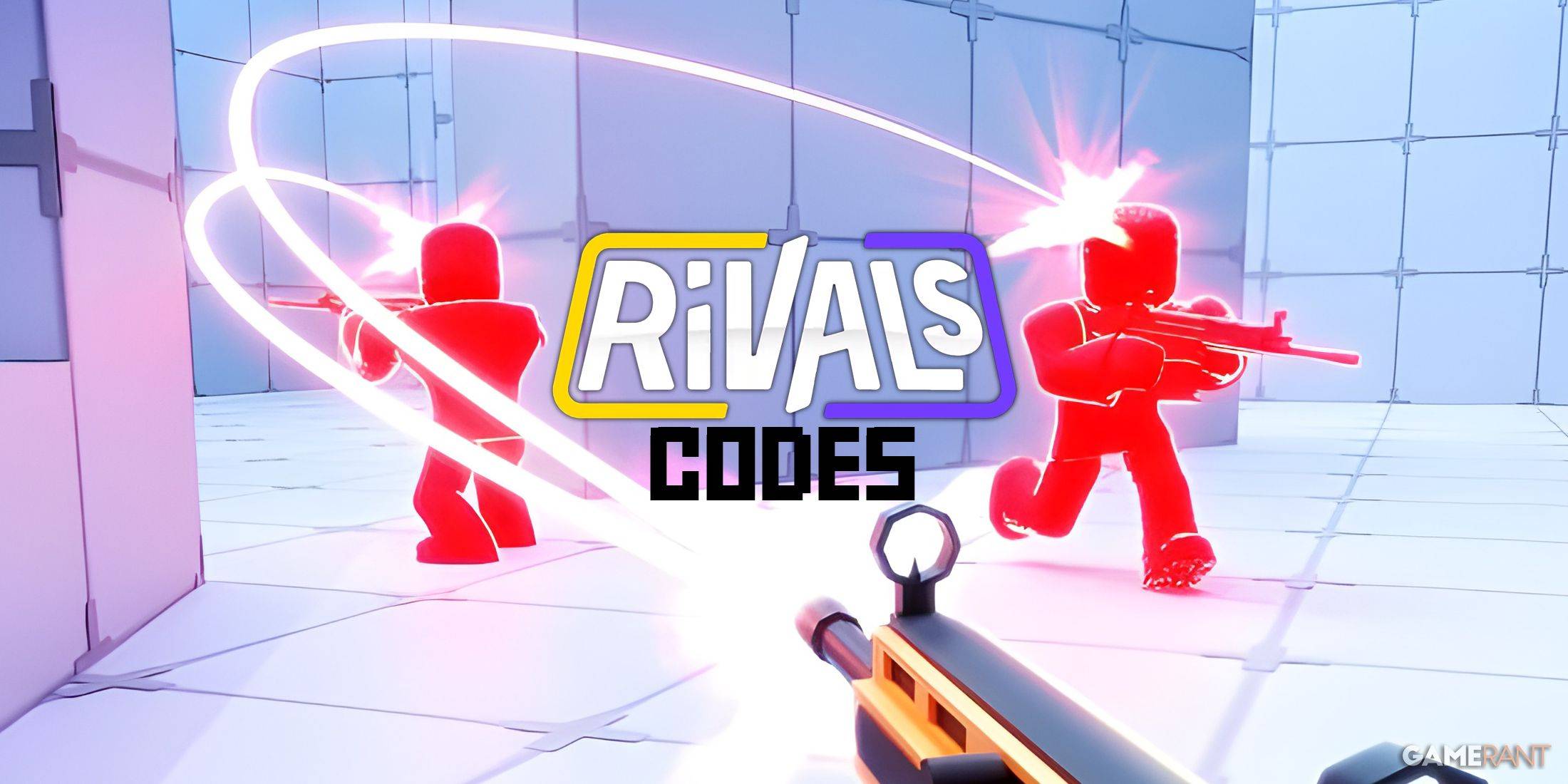
Roblox: RIVALS Codes (January 2025)
Jan 07,2025
-
8

Blue Archive Unveils Cyber New Year March Event
Dec 19,2024
-
9
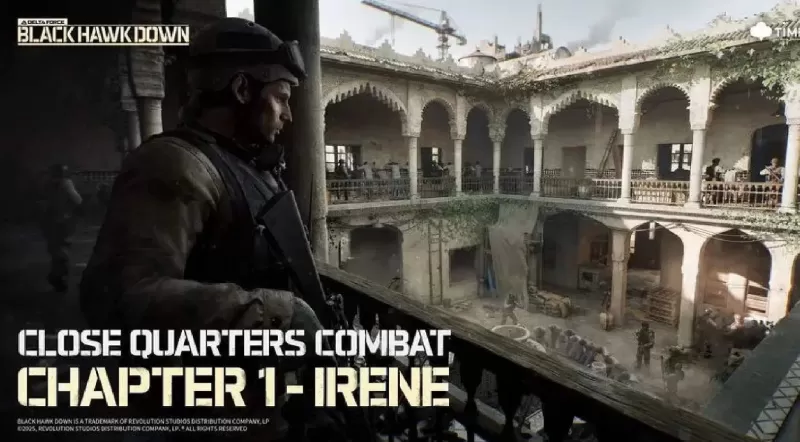
Delta Force: A Complete Guide to All Campaign Missions
Apr 09,2025
-
10
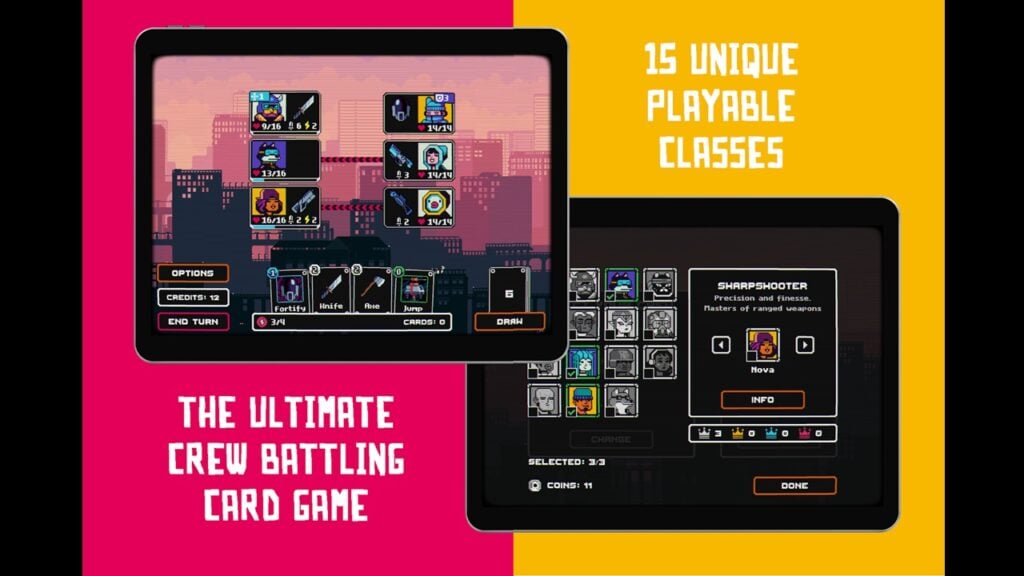
Cyber Quest: Engage in Captivating Card Battles on Android
Dec 19,2024
-
Download

A Simple Life with My Unobtrusive Sister
Casual / 392.30M
Update: Mar 27,2025
-
Download
![Corrupting the Universe [v3.0]](https://imgs.ksjha.com/uploads/66/1719514653667db61d741e9.jpg)
Corrupting the Universe [v3.0]
Casual / 486.00M
Update: Dec 17,2024
-
Download

Random fap scene
Casual / 20.10M
Update: Dec 26,2024
-
4
Ben 10 A day with Gwen
-
5
Oniga Town of the Dead
-
6
Cute Reapers in my Room Android
-
7
A Wife And Mother
-
8
Permit Deny
-
9
Utouto Suyasuya
-
10
My School Is A Harem

